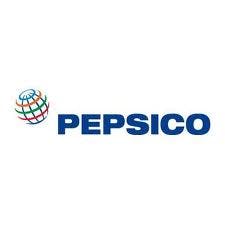PepsiCo (PEP) trumped analyst estimates on Thursday, April 26 when the company announced that during the first quarter 2012 it had earned 69 cents a share, over analyst estimates of 67 cents a share and brought in revenues of $12.43 billion, versus estimates of $12.36 billion. Perhaps we shouldn’t be surprised – after all, Pepsi has either toppled analyst estimates or met them with regard to both earnings and revenues for the previous 5 quarters. But, that is only part of the story. Pepsi might have beaten analyst estimates, but it did not beat its own historical numbers. Pepsi had earned 74 cents a share the same quarter last year.
Overall, Pepsi’s first quarter sales rose 4.1% compared to a year earlier, aided largely by increased prices paid by consumers. The company raised its retail prices by roughly 5.5% globally. The company’s net income fell 1.3% over the same quarter last year – a fact blamed largely on Pepsi’s enhanced marketing efforts (up 25% in the US alone) and higher commodity costs.
Pepsi, which recently traded at just over $66 a share is expected to earn just $4.09 a share this year, down from $4.40 a share last year. Going forward, analysts predict that the company will earn just $4.44 a share in 2013. That means the stock is priced at almost 15 times its future earnings. The figure is low compared with its industry, which average a forward price to earnings ratio of 19.69 and marginally lower than rival Coca-cola (KO), which, at $75.75 a share, is priced at 16.86 times its forward earnings. However, Pepsi is priced higher than Dr Pepper Snapple Group (DPS), its much smaller competitor. Dr Pepper is trading at just under $40 a share and has a forward price to earnings ratio of 12.43.
In February, Pepsi had warned that its profits would fall 5% in 2012 and said that it was targeting $1.5 billion in cost savings by 2014 to make up the difference – including cutting 8,700 jobs. The issue, ironically, appears to be its beverage business. Its beverage sales grew just 2% in the first quarter over the same period last year. Pepsi is losing out big time to Coca-Cola, which boasts its regular Coke as the number one selling soft drink in the US and, as of 2010, its Diet Coke as the number two best selling. Pepsi comes in third.
Plus, the difference in consumer preference is not limited to retail sales – even corporate clients are switching sides. Last year, Starwood Hotels (HOT) switched to Coca-cola from Pepsi – a move that means that all the world’s Sheratons, Westins and Four Points by Sheraton are serving Coke products instead of Pepsi. Then, Dunkin’ Donuts (DNKN) jumped ship, signing a multiyear agreement with Coca-cola to sell its soft drinks, juices, energy drinks and waters at all its Dunkin’ Donuts and Baskin Robbins stores.
Emerging markets are a huge source of opportunity for Pepsi. In 2011, over one-third of the company’s revenues came from emerging markets, while its snack and beverage revenue from emerging economies was up 13% in the first quarter. Pepsi already has more than $1.6 billion invested in China. Although its foothold there is not as strong as it could be, a strategic venture with Chinese packaged food company Tingyi could improve that. The deal, which recently gained approval, is expected to save Pepsi roughly $200 million in operating losses.
Right now, Pepsi is being buoyed by the success of its snacks business. Worldwide snack revenue for the company grew 7% in the first quarter compared to same period last year. Pepsi owns such big name brands as Fritos, Doritos, Aunt Jemima, Quaker, Sun Chips, Ruffles, Lipton, Capn’ Crunch and Rice-a-Roni – brands that could clearly stand alone as a company. Already, Pepsi reigns as snack king in the US, controlling almost two-thirds of the market and its market share is no less impressive in the UK, coming in at 46%, and emerging markets like Brazil, where it controls 60% of the market. These facts are leading some investors to question whether Pepsi shouldn’t go the route of ConocoPhillips (COP) and cut off its slower growth beverage business from its more lucrative snacks business.
Hedge fund enthusiasm for the company certainly seems to be waning. Jacob Gottlieb’s Visium Asset Management initiated a put position in Pepsi during the fourth quarter last year while Ray Dalio’s Bridgewater Associates, Louis Bacon’s Moore Global Investments and Nelson Peltz’s Trian Partners sold out of their respective positions. I recommend investors keep an eye out for a split from Pepsi but hold off on buying in. For my money, I recommend market leader and Berkshire Hathaway favorite Coca-Cola (see Warren Buffett’s favorite stock picks).
